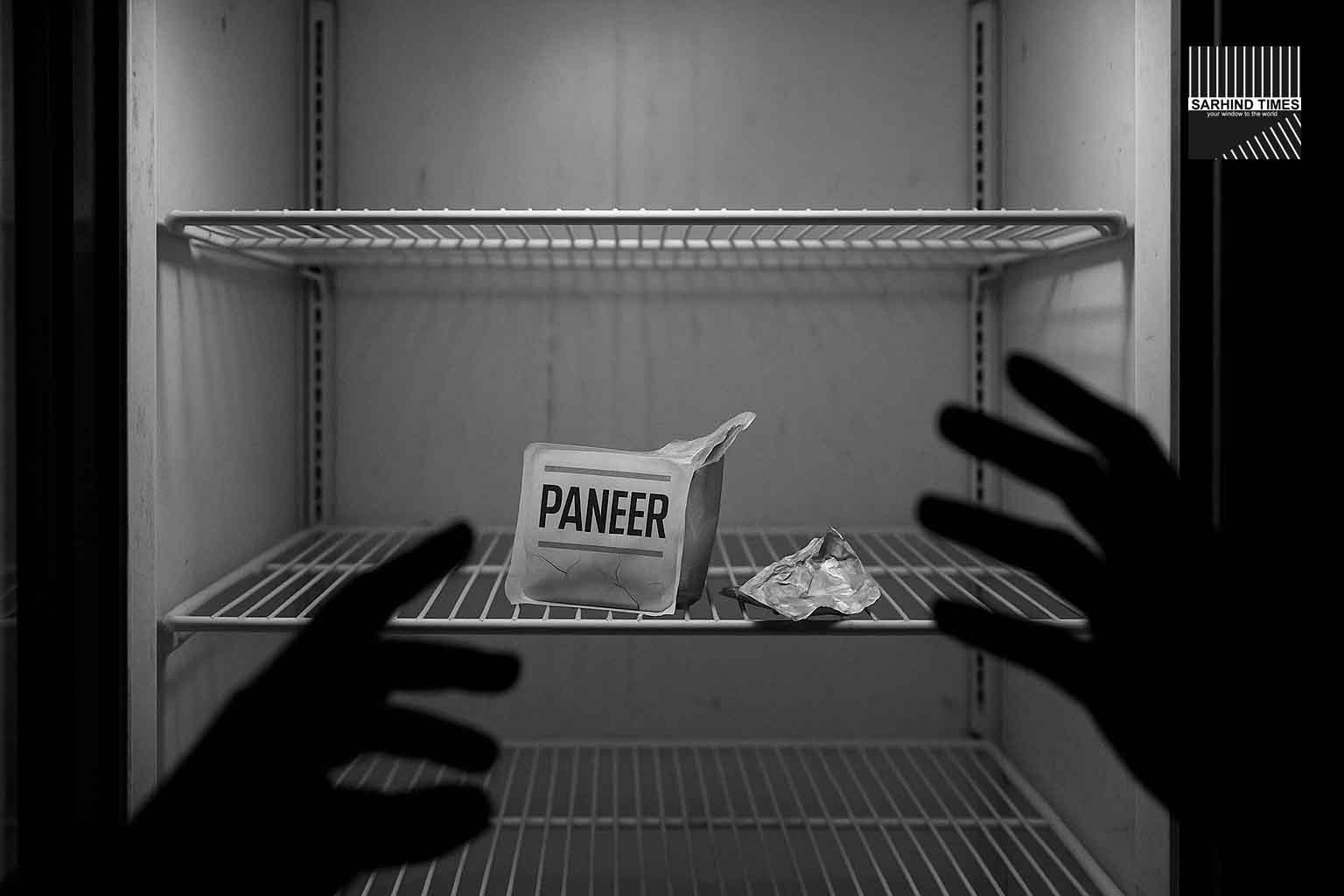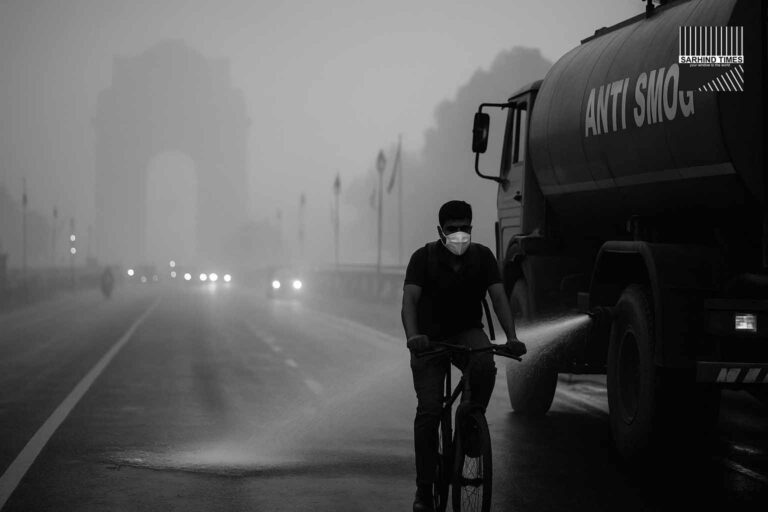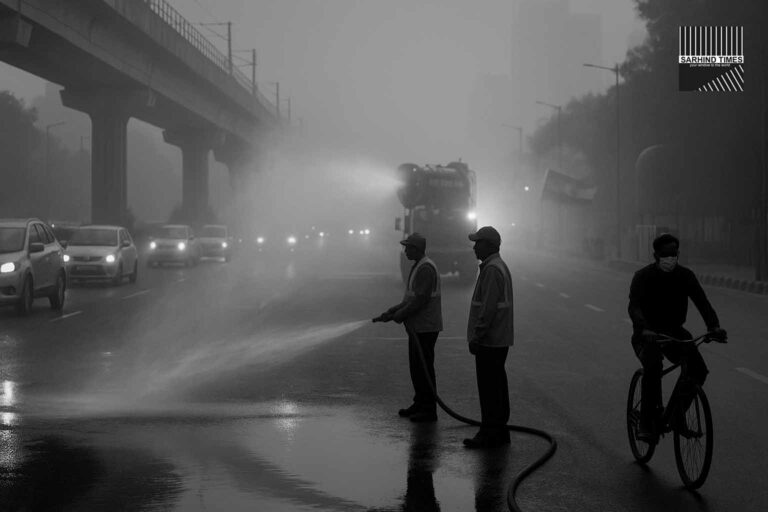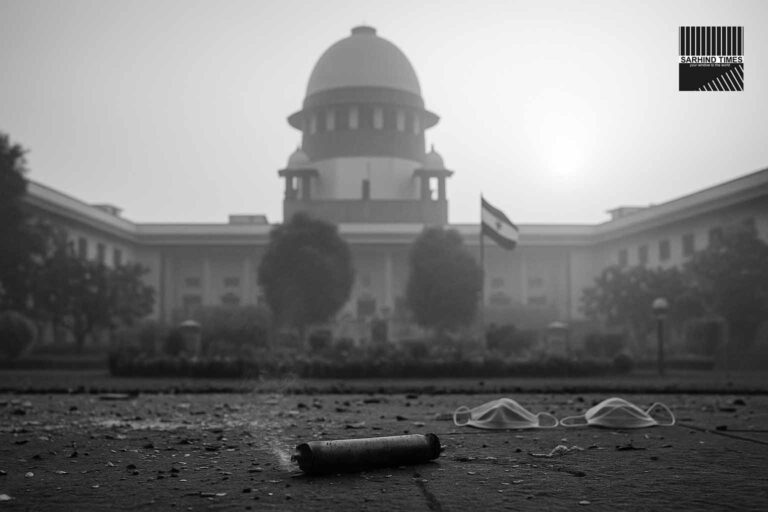Gurugram, October 12, 2025 — In a sharp turn amid heightened pre-Diwali vigilance, the Food Safety Department conducted a raid on a Blinkit dark store behind ROF Mall in Sector-43, Gurugram, following a consumer complaint alleging repeated delivery of spoiled paneer. Multiple samples were seized for lab testing, and the findings may trigger penalties under the Food Safety and Standards Act. The episode underscores emerging regulatory pressures on quick commerce supply chains, where speed promises collide with risks of cold-chain lapses, poor storage, and quality control failures.
The raid is among several food safety enforcement actions across the city ahead of the festival season, especially targeting perishable, high-risk products. Blinkit, which operates a large network of dark stores to fulfill ultra-fast grocery orders, is expected to respond once laboratory results come in. Meanwhile, consumers are being urged to verify packaging, dates, and storage integrity, and to report suspected violations via official helplines.
Below is the full report, context, regulatory dynamics, and what this means for the future of quick commerce in India.
Incident Details & Official Responses
Complaint & Consumer Version
- A resident of Sushant Lok-1 lodged a complaint that his paneer delivery via Blinkit smelled foul. Despite complaining and being given a replacement, he claimed the second packet too was “rotten and expired.”
- The complainant said he preserved the expired paneer and recorded video evidence of the store’s condition and the staff’s response. He alleged that staff were unresponsive when first approached
- When the customer visited the dark store, he said the store manager “accepted their mistake” but behaved roughly and with rude gestures.
Raid & Sample Collection
- Acting on the complaint, Food Safety Department officials raided the Blinkit facility behind ROF Mall in Sector 43. Multiple samples were collected from the store, including paneer, kesar peda, milk cake, and toned milk for lab testing.
- The raid is part of a citywide inspection drive intensified ahead of Diwali, with a focus on dairy, sweets, and other perishable items.
- Officials said that, based on lab results, action would be taken in accordance with the Food Safety and Standards Act, 2006, including potential penalties, license suspensions, or recalls.
Blinkit’s Position & Silence
- As of now, Blinkit has not officially issued a detailed public comment, stating that it will respond after testing and investigations conclude.
- Previous instances have shown that quick commerce entities often promise cooperation and internal review following raids.
- In media versions of the story, Blinkit is expected to engage in damage control, clarifications, or quality assurance communication, depending on lab outcomes.
Quick Commerce & Dark Stores: Pressure Points in Food Safety
The raid on Blinkit’s dark store cannot be viewed in isolation. It reflects broader fault-lines in the quick commerce industry, especially when it comes to perishable, high-risk food items.
Nature of Dark Stores & Supply Chain Stress
- Dark stores operate as micro-warehouses to fulfill ultra-fast delivery promises (10–30 minutes) for groceries and essentials.
- These stores handle a mix of dry goods and perishables, including dairy, cheese, meat, ice creams, fruits, etc.
- The speed imperative often compresses time for quality checks, temperature control, stock rotation, and inventory audits.
- In some franchise or partner-run models, the dark store operations may be less overseen, increasing risks of oversight lapses.
Regulatory & Statutory Framework
- Every food business operator must comply with FSSAI licensing / registration norms under the Food Safety & Standards (Licensing and Registration) Regulations, 2011.
- Storage, handling, cold-chain control, documentation, recall protocols, labeling, shelf-life, packaging integrity, employee hygiene are mandated.
- Under the Food Safety & Standards Act, 2006, authorities can issue improvement notices, suspend licenses, issue recalls, impose fines, or prosecute in case of serious violations.
- During festival seasons, many agencies ramp up inspection cycles, especially in markets, sweet shops, dairies, and high-risk food categories — as has been done in Gurugram ahead of Diwali.
Challenges in Enforcement
- Rapidly sprawling dark store networks across cities make it difficult for regulators to inspect each outlet systematically.
- Some dark stores operate in semi-residential or unmarked zones, making surprise inspection harder.
- The partnership / franchise models sometimes blur accountability (i.e. whether Blinkit as platform is legally responsible or the store operator).
- Turning around non-compliant stores requires regulatory capacity — lab testing delays, follow-up enforcement, legal burden.
- The public may not always be aware of consumer rights, ISO / FSSAI verification marks, or how to file complaints.
Consumer Safety, Trust & Platform Accountability
Impact on Consumer Trust
- Incidents like rotten paneer delivery erode trust in e-groceries and quick commerce models especially for perishable items.
- Consumers depend on safe food delivery, expecting platform accountability, not just refund redressal.
- During high-demand festive seasons, such trust erosion can affect broader brand reputation and loyalty.
Platform Responsibilities
- Platforms need end-to-end quality assurance: from procurement, warehousing, storage, dispatch, last-mile delivery.
- Implementation of IoT temperature monitoring, traceability systems, batch recalls, shelf-life alerts is becoming essential.
- They should publish compliance metrics, internal audit results, third-party certifications to boost consumer confidence.
- Transparent grievance redressal, helpline escalation, compensation policies must be responsive.
- They should proactively communicate quality awareness, e.g. notifying consumers about shipments of perishables, advising immediate refrigeration, etc.
Role of Consumer Redress & Public Action
- Consumers who receive spoiled or suspect goods must preserve the product (photograph, date stamp, packaging) and file a complaint with:
- The platform’s customer grievance mechanism
- Local food safety authority / health department
- Consumer forum / courts if needed
- Public pressure, social media exposure, local media coverage can prompt platform response or regulatory scrutiny.
What Happens Next: Lab Results, Enforcement & Platform Strategy
- Lab Testing & Report
- The collected samples (paneer, milk products, sweets) will be tested in government-approved labs for microbial contamination, spoilage, adulteration, expiry status, etc.
- The report will be central in determining whether Blinkit violated food safety standards.
- Regulatory Action
- If violations are confirmed, authorities may issue improvement orders, fines, license suspension, product recalls, or even criminal proceedings depending on severity.
- The store’s license to operate dark store or as a food business may be suspended or canceled.
- Platform Response
- Blinkit may issue a public statement, commit to internal audit, assure quality checks, or even voluntarily recall suspect stocks.
- They might review SOPs, retrain staff, upgrade cold storage systems, and tighten auditing.
- Public & Media Scrutiny
- Follow-up reporting will monitor whether enforcement is enforced, whether the particular store reopens, and whether consumers get compensation or transparency.
- Local consumer groups or media may push for publication of lab findings, safety gradings of dark stores, or a citywise quality index.
- Broader Industry Impact
- The case may push other quick commerce players to audit and harden their quality systems to avoid similar raids or reputational damage.
- Regulators in other cities may follow suit with intensified inspections of dark stores, warehouses, and cold-chain nodes.
- Industry associations may propose self-regulation or third-party certifications for dark store hygiene compliance.
Conclusion
The Gurugram raid at Blinkit’s Sector-43 dark store over repeated complaints of spoiled paneer is more than an isolated food safety case — it is a flashpoint in the evolving collision between ultra-fast commerce promises and consumer health safeguards. As labs test and enforcement decisions loom, the episode is likely to recalibrate expectations of platform accountability, regulatory stringency, and consumer trust.
For Blinkit, the path ahead involves transparent communication, remediation, and systemic quality overhaul. For regulators and public agencies, the test is enforcing standards in a sector scaling at breakneck speed. For consumers, it is a reminder to stay vigilant, check packaging and expiry, and use public channels to demand safe delivery — especially during festival seasons when the pressure on dark store systems is intense.
The outcome of this raid will resonate not just in Gurugram, but across India’s quick commerce ecosystem, both as a cautionary case and possibly as a turning point toward stronger compliance culture.
#Gurugram #FoodSafety #Blinkit #QuickCommerce #Diwali






















+ There are no comments
Add yours